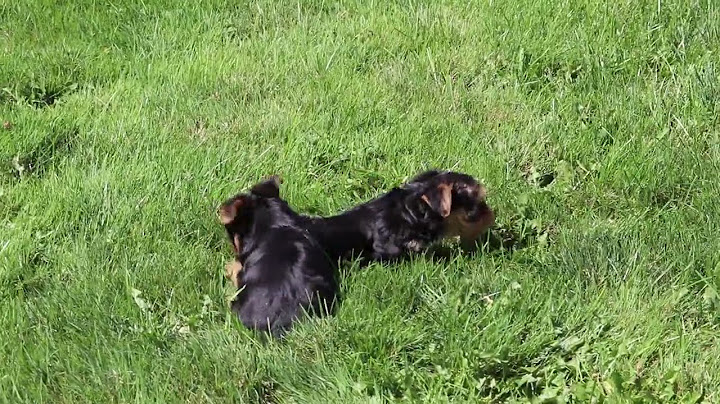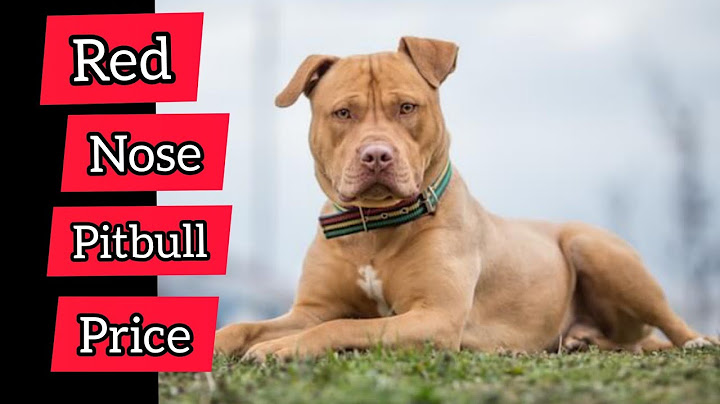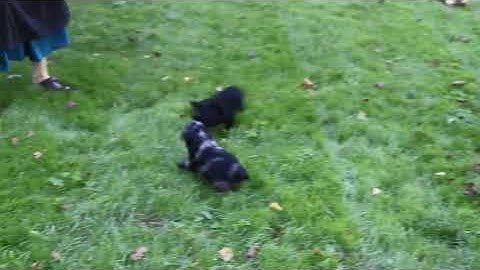Country of Origin: Croatia Owner ExperienceGroomingActivity LevelSizeLife SpanDid You Know?The Dalmatian, affectionately referred to as the Dal, is known for its spotted coat and has a well-known reputation as a rescue dog and a firehouse companion. The American Kennel Club recognized the Dalmatian in 1888. Although they are a very athletic dog breed, the AKC recognizes them as part of the Non-Sporting Group. They originated in the early 1800s in the region of Dalmatia, which is now modern-day Croatia. They were originally used to guard horse-drawn carriages and coaches as well as the horses that pulled them, but were also used to guard borders, act as shepherds, and perform for audiences. They were commonly seen guarding gypsy caravans as well as the coaches of nobility. Now, the Dalmatian still works as a coach dog, riding or running along with the Budweiser Clydesdales as they are on parade. As a family pet, the Dal is a loving and loyal house dog that is also an excellent athlete. This dog breed is loyal and courageous. They are loyal, protective, and affectionate towards their families. Dalmatians also tend to get along well with children and other animals. Due to their protective guard dog origins, they are often dependable watchdogs that can be aloof and suspicious of strangers. The Dalmatian is often a perfect balance of nobility, affection, and athleticism. They tend to be reserved around strangers and have a dignified aura. With their families, the Dal is bright, excitable, and loving. They are also incredible athletes – strength paired with endurance and stamina. They are a great fit for active families who can include them in their activities. The Dalmatian is moderately adaptable. Due to their high energy and need for exercise, they do not tend to do well in apartments and are better-suited to houses with yards. They can tolerate some alone time, if socialized properly. However, they do love to be with their families, so you don’t want to leave them alone for too long, especially because they’ll need to expel some built-up energy. Dalmatians do well in most climates. As with many dog breeds, they are sensitive to extreme hot or cold temperatures. Due to their short coat, they handle hot weather a little better than some dog breeds. You should still watch them carefully to ensure they are not getting overheated in the summer. Also because of their short coat, they may feel the chill a little more in the winter than some thicker-coated dog breeds. A good winter jacket and some other winter gear can help your Dal stay warm on walks when the temperature drops. As with all dog breeds, the Dalmatian has some health conditions to be aware of. Common health issues include deafness, kidney stones, and joint issues like elbow and hip dysplasia. Although deafness is common in the breed, you can check the genetic history of the parents and the hearing of the puppies to identify this issue early. A Dalmatian that is unilaterally deaf, which means it is only in one ear, can live a relatively normal life without special assistance. However, a dog that is bilaterally deaf, which means it is in both ears, will need assistance and special considerations to live a normal life. In addition to the genetic history of the parents, you can also ask to see health clearances, like a Hip Evaluation from the National Breed Club, to allay other potential health concerns. This dog breed responds well to obedience training and treat-based rewards. Starting training and socialization as early as possible will ensure your Dalmatian puppy grows into a mature, confident dog. You want them to be comfortable with new situations and people. The Dal is a sensitive soul, so it is important to keep training positive and reward-based. Treats can be a great reward, but you don’t want to use them as the only reward all the time as too many treats can cause obesity. Dalmatians are known for their white coat with black spots. The coat is short and coarse. It requires a moderate amount of grooming. Weekly brushing and the occasional bath will keep your Dalmatian’s coat sparkling. Other than that, it’s important to trim their nails monthly, brush their teeth, and check their ears regularly. Because their ears drop down, they can be susceptible to dirt, debris, and moisture. Checking your Dalmatian’s ears regularly and cleaning them as needed can help prevent ear infections. It’s also important to brush your dog’s teeth. Daily brushing is ideal to help prevent the tartar buildup that causes dental problems like tooth decay and gum disease. Built for running ahead of the horse carriages of firehouses past to clear the way, the Dalmatian is athletic and has a high energy level. They need daily walks and plenty of exercise to remain happy and healthy. Because the Dalmatian is built to run and has plenty of endurance, they are one of the dog breeds that make good running partners. Whether it’s chasing a ball, running with their owner, or going on a hike with you, the Dalmatian will be happy to be active and near you. They can even keep up with you when you are on a bike! However, it is important not to exercise your puppy strenuously in their first 2 years of life. Their joints and bones are still developing until then and too much too soon can damage their developing bones. The Dalmatian is a medium-sized dog breed. They will usually stand 19 to 24 inches tall at the shoulder and weigh between 45 and 70 pounds. Dalmatians generally live for 11-13 years. When Dalmatian puppies are born, they do not have spots. Their spots start to develop when they are around 3-4 weeks old. They will continue to develop spots slowly throughout their life, but will have most of their spots after about a month. Featured Dalmatian ArticleHow much does a Dalmatian puppy cost?Dalmatian puppies can be found with a price tag ranging from $50 to $2,000. The price is largely dependent on where the dog is adopted from. Qualified, registered breeders are going to be the most expensive. However, this is mostly because they put a lot of money and time into their puppies.
Are Dalmatians good pets?Dalmatians are highly energetic, playful and sensitive dogs. They are loyal to their family and good with children, although some Dalmatian experts caution that the breed may be too energetic for very small children. These dogs are intelligent, can be well trained and make good watchdogs.
Is there a teacup Dalmatian?Miniature Dalmatians - Miniature Dalmatians. Are a compact size, city dwelling, "Dalmatian Lover's” dream come true. Our Miniature Dalmatians come with all of the great characteristics and conformation of AKC Champion Dalmatians and are only 12”-15” at the withers. They average 15-20 pounds at full maturity.
Are male or female Dalmatians better?Generally speaking, if you're looking for a slightly calm dog that isn't clingy and is easy to train, you might want to consider a female Dalmatian. But if you prefer a goofy, sweet, and loyal dog with a ton of energy and that will form a strong bond with you, the male might be the way to go.
|

Related Posts
Advertising
LATEST NEWS
Advertising
Populer
Advertising
About

Copyright © 2024 nguoilontuoi Inc.

















